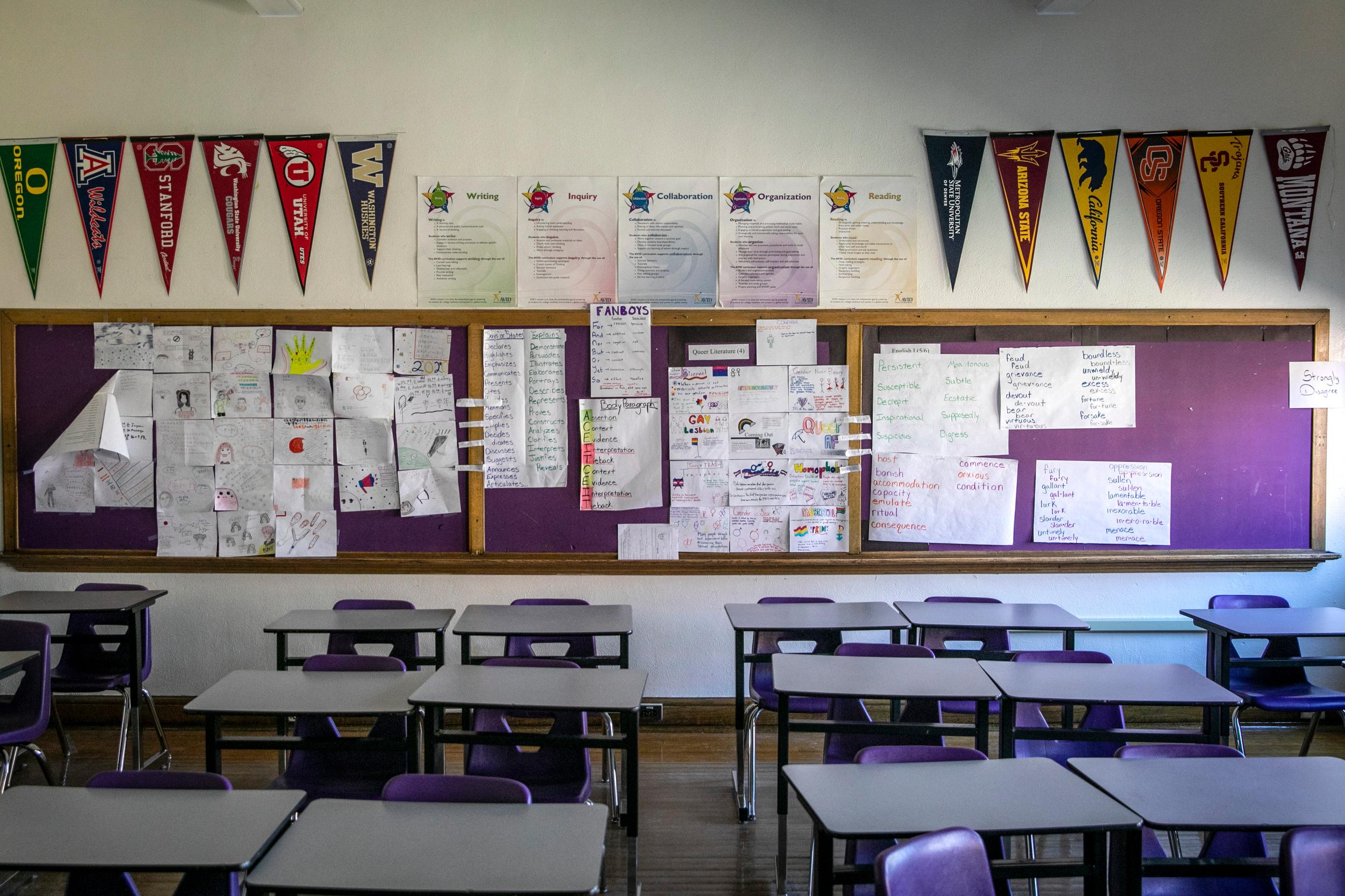
A committee charged with reviewing Colorado’s social studies standards has decided to cut guidance directing teachers to highlight LGBTQ issues in every grade.
In November, the committee, which reports to the Colorado State Board of Education, recommended expanding the presence of diverse subjects to meet goals set by recently passed legislation.
Those proposals said teachers should make sure they discuss the experiences of disadvantaged communities, like the Black, Latino, Native American and LGBTQ+ populations, in civics lessons. They also included revisions to how Holocaust and genocide studies are taught.
Feedback included concerns over a 'negative' portrayal of American history and how age-appropriate LGBTQ issues are
Since then, hundreds of people have submitted feedback through an online database and other forms of public comment. The committee characterized a majority of the feedback, which primarily came in the form of line-by-line comments on the revisions, as positive. However, they noted most of the comments came from a small group of people — 11 respondents produced 49 percent of the messages.
About a quarter of the feedback criticized the more inclusive recommendations issued in November.
When announcing the new revisions Tuesday, committee member Floyd Cobb said a reoccurring critique was that those standards “emphasize ‘negative’ elements of American history.” Cobb told the board his group is making revisions to “provide more balance to the standards,” but he did not specify what those changes would look like.
The committee also reported “numerous concerns… about the age appropriateness of LGBTQ in lower grades.” In response, the committee removed all references to LGBTQ issues in the standards for students below 4th grade.
Board members were torn over the decision
Several board members disapproved of that decision. Lisa Escárcega, a Democrat from the 1st congressional district, said she would not vote to approve standards that do not include references to LGBTQ for students in all grades.
“If our state and education systems are working toward equity, then it has to include all people,” she said. “We have to be bold in supporting our LGBTQ students as we do all our students.”
Karla Esser, a Democrat from the 7th congressional district, expressed concern that the committee is capitulating to a small but vocal group of parents, ignoring those who either approve of or have no opinion on LGBTQ inclusion in young students’ curriculum. She also argued that removing these references perpetuates gender stereotypes.
“We genderize kids beginning in preschool. Some boys play with trucks and we assume that's a boy's toy and little girls play with dolls and we assume that's a girl's toy,” Esser said.
Republican vice-chair Steve Durham, who represents the 5th congressional district, approved of the removal of LGBTQ references, equating it to sex education.
“The problem with the LGBTQ issues are not inclusion or exclusion, but whether the discussion of sex in its various forms is appropriate for kindergartners,” Durham said.
But Esser pushed back, saying nothing is sexual about increasing representation in classrooms.
“Even when we talk about mom and dad, we don't go into sexual education. We just say, there's a mom and dad. And if you say this family has two dads, you're just saying they're two dads. It's a gender identification. It is not sexual education,” Esser said.
Next steps for revising Colorado's academic standards
The committee will present its final recommendations next month before turning over the standards to the board. Board members will meet four times between June and October to discuss topics in more depth and make further changes. A final vote on adopting the standards could come in November.
Colorado’s academic standards set expectations for what students need to know before they can move on to the next grade, but they are just a baseline. School districts individually design their own curricula to build off of the state’s minimum standards.
Under new state law, Colorado’s academic standards must be reviewed and revised every six years. Currently, dance, drama/theater arts, music, social studies and the visual arts are undergoing their review processes. Later this year, comprehensive health, computer science, physical education and world languages will enter the cycle.








